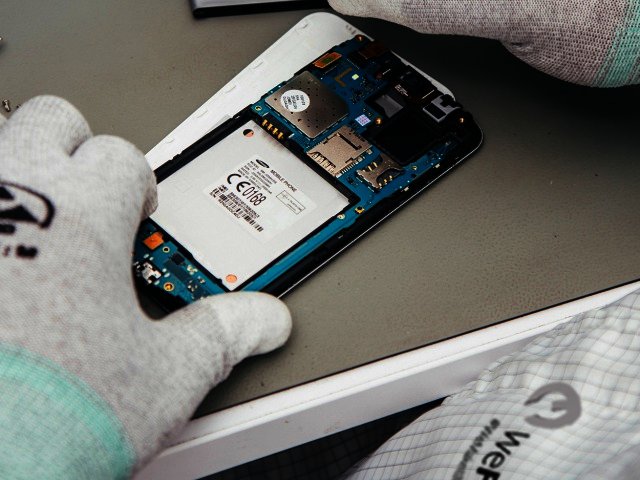After the screen, the battery in your mobile device is the most important part to protect so your smartphone or tablet performs optimally.
All smartphone users want enough battery life to last the day so it’s frustrating when, as a device gets older, it seems to have less power. That is because the amount of battery life our devices have depends on two key factors: how we use them on that particular day, and how we used them in the past.
“Batteries are a ‘consumable’ part of a device so it’s not meant to last forever, but there are active steps consumers can take to ensure the battery lasts well after it’s time for an upgrade,” explains Ben la Grange, technical manager at weFix.
Battery Boost #1 – Be aware of battery discharge
People used to think they had to "train" batteries to make sure they would take the most charge. That’s a myth – batteries do not have ‘memory’. Modern devices have battery-management systems to reduce damage from overcharging that shut down automatically if the battery gets too low.
Still, to maximise future battery capacity, it’s best to avoid that 0% battery mark altogether.
It’s also a good idea to keep batteries at least partially charged if storing them for a prolonged period - when going on holiday to a remote area without reception for example - to avoid deep discharge.
Battery Boost #2 – Screen your phone
Unfortunately, a battery's mortal enemy is your new smartphone's large, bright, colourful display.
“The display consumes battery life at a devastating pace, particularly when a device uses the auto-brightness feature to automatically adjusts the screen's brightness to suit ambient lighting levels,” says la Grange.
Granted, constantly running your screen at full brightness would use even more power but turning your screen's brightness down to the lowest setting you can tolerate, and leaving it there, is the best idea for your battery.
La Grange says that weFix technicians also suggest keeping the 'screen timeout' or ‘auto-lock’ time to a minimum to reduce how long your phone's screen stays lit after receiving input. Every second counts!
Battery Boost #3 – Stay unlocated
Apps using GPS, Wi-Fi and mobile data to monitor your location are also big drains on battery life.
Be smart about what you allow your apps to access – granting apps permission to integrate with your location, camera, or SD card can be convenient but it’s often not necessary for optimal functioning, and it drains your battery for little benefit.
Experts at weFix recommend looking through the settings on your Android or iPhone device and revoking nonessential apps' access to location services.
Battery Boost #4 – Notifications are non-essential
Well, some of them are, and they drain your battery. Any app that chimes, lights up your screen, displays a message, makes your LED blink, or all of the above consumes energy.
“Leaving apps open while not in use isn’t the problem as they don’t use resources,” explains la Grange, “unless you’ve given apps permission to run features in the background. This is especially true with instant messaging apps like Whatsapp, and others with non-stop notifications.”
You might not wish to turn off notifications about new text messages or missed calls but turning off non-essential notifications will help your battery last a little longer. Added bonus - fewer distractions throughout the day.
Battery boost #5 – Not too hot and not too cold
Once upon a time, consumers were advised that storing batteries in a fridge would help them last longer. Fortunately, that has faded into urban legend.
La Grange agrees, saying, “It was terrible advice even at the time, because batteries are complex chemical units that should not ever be exposed to extreme temperatures – whether a fridge, or a hot car during the day.”
What if you’ve followed all this advice, and your battery still doesn’t hold its charge for longer than a couple of hours? It might be time to replace it.
“If your phone dies before your battery gets to zero or even turns off at around 20%, if the battery battery drains quickly after a full charge, or if your phone software seems to be running slower to preserve power, it’s likely that you need a battery replacement,” says la Grange, who heads the technical team at weFix.
It’s also common and considered normal for batteries to swell up to 10% over the course of 500 charging cycles which can affect performance so if there is anything out of the ordinary, it’s best to take it to a professional.





